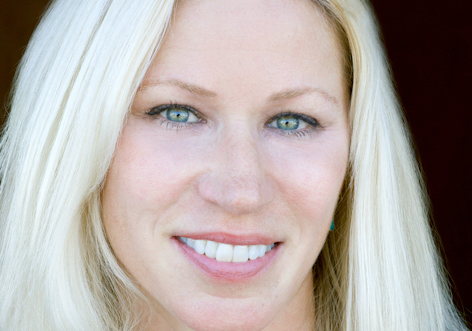Jill K. Robinson writes about travel, adventure, food, and drink for the San Francisco Chronicle, AFAR, National Geographic Traveler, Robb Report, Private Clubs, SaturdayEvening Post, Outside, Sunset, Coastal Living, American Way, Delta Sky, Celebrated Living, Rhapsody, Beyond, Sierra, Wine Enthusiast and more. Her essays have been published in Travelers’ Tales books: The Best Travel Writing and The Best Women’s Travel Writing.
How did you get started traveling?
My family traveled a fair amount around the Western United States when I was a kid, always on road trips. It got me used to sharing space (my sister and I drew an imaginary line down the middle of the back seat), finding ways to occupy myself during down times (Auto Bingo was huge), and allowed me to see places over longer periods of time than an average “one day and done” traveler.
How did you get started writing?
In my late teens and early 20s, my friends gathered my postcards from trips, bundled them together, and returned them to me—saying that I needed to pursue writing. I dabbled for quite some time, throughout grad school and jobs in performing arts and tech, before I truly took it seriously.
What do you consider your first “break” as a writer?
I was still working in tech, at Yahoo, when the director of editorial approached me to work for him. The team I managed in what we called the Central Editorial department included some of the most gifted writers I’ve worked with. Our beat was pop culture, so we had to be equally good about writing about travel, sports, TV, film, politics, food and drink, and various other topics that popped up on a daily basis. It taught me to be versatile as a writer, and that’s one of the best lessons I’ve learned.
As a traveler and fact/story gatherer, what is your biggest challenge on the road?
Being able to immerse myself in the culture to get a true picture of the destination. Time is often a challenge, and it can be tempting to want to run around to experience everything, especially when it’s a destination I haven’t visited before. But to get a sense of place, slowing down is essential. It’s one of the reasons I avoid group media trips. As much as many of my colleagues are great friends, traveling in a group of them often keeps me from being able to explore on my own, on no particular schedule.
What is your biggest challenge in the research and writing process?
I remember once thinking that writers who worked on assignments while on the road on a different assignment were amazing, and that I could never do it. But when you have a finite amount of time and assignments and deadlines that pile into each other, you have no choice. My biggest challenge is carving out the necessary time for research, pitching, travel, writing, and the entire rest of my life. It requires frequent evaluation, shifting of priorities, and often, it requires me to say no to things.
What is your biggest challenge from a business standpoint?
Much of it has to do with money. I started writing online, but most digital outlets don’t pay very well. Freelance travel writing doesn’t always pay well in general, and those outlets that do tend to be print. But with magazines folding here and there, fewer of those outlets exist each year. And even when you do the work, you sometimes have to gently remind people to pay you. Or, not so gently. I’m currently chasing a payment that’s 10 months late.
Have you ever done other work to make ends meet?
I’m a full-time freelancer. The vast majority of my work is covering travel, adventure, culture, food and drink. However I do have a few clients for whom I do corporate writing work. I also lead kayak and stand-up paddling trips, as well as teach paddle sports skills. But my time as an athlete is far eclipsed by my writing work.
What travel authors or books might you recommend and/or have influenced you?
I have always loved reading Tim Cahill’s work. It’s the perfect package: storytelling, background story/facts, personalities, voice, and he’s comfortable poking fun at himself in ways that many self-conscious writers avoid because they always want to look good. I like seeing the different skills my colleagues exhibit, and try to learn from what they do best.
What advice and/or warnings would you give to someone who is considering going into travel writing?
We all stumble into it differently. I’m an analytical person in terms of how I learn things, and spent much of my early writing years intently studying publications, reading the work of others, and always writing. I still do that today. It’s worth listening to those who tell you to keep your day job, since travel writing may seem glamorous, but doesn’t pay well in dollars. But don’t think that advice means you can’t make a go of this industry as a full-time freelancer. Many of us have, and do reasonably well. A lot depends on what kind of lifestyle you require for yourself and how flexible you are.
What is the biggest reward of life as a travel writer?
If you’re a curious person, it’s one of the best gigs. Every day is different. Today, I may be researching organic pearl farming, and tomorrow, I may be writing about a specific cultural group in Singapore. Being able to travel and meet people from different cultures opens my eyes wide and allows me to be a better global citizen, because it’s one thing to read about an issue, but it’s another to see it and how it impacts those who live in the place. Awards are nice to put on your resume, and I’ve gotten my fair share, but a far better reward to me is hearing that someone loved a story of mine and that it changed how the reader looks at the world.

